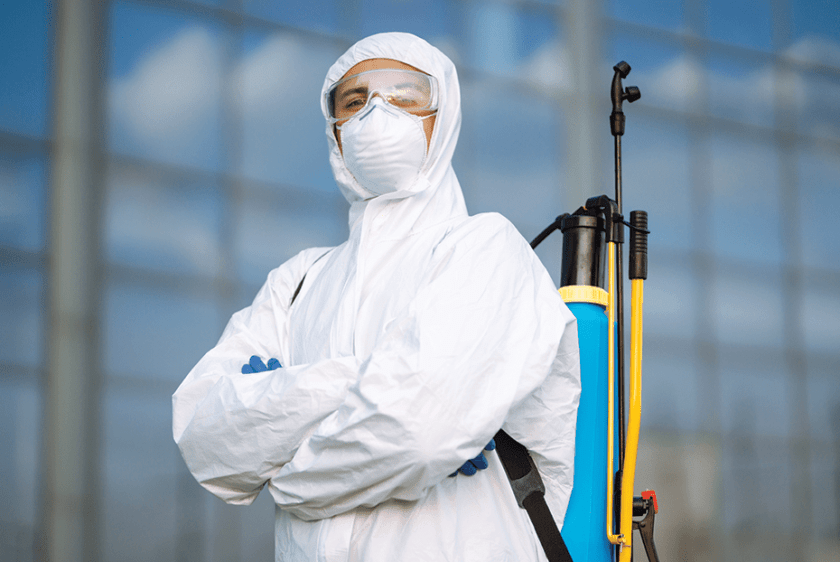Checking Out Ingenious Techniques and Products for Efficient Insect Control
The landscape of parasite control is evolving, noted by the appearance of cutting-edge strategies and items developed to improve performance and sustainability. From clever catches outfitted with advanced monitoring systems to organic techniques that utilize natural killers, these developments present a standard change in how we approach pest monitoring. In addition, eco-friendly chemical options and pheromone interruption techniques offer targeted options that align with environmental stewardship. As the industry grapples with these developments, a closer assessment discloses not only their implications yet also the prospective obstacles that might occur in their execution.
Smart Traps and Keeping Track Of Equipments
How can modern innovation enhance parasite administration? One substantial innovation is the advancement of clever catches and monitoring systems, which offer real-time information and analytics for reliable parasite control. These systems make use of sensing units and wireless technology to detect insect activity, informing residential property managers and insect control professionals to infestations prior to they intensify.
Smart traps are outfitted with features such as bait stations that attract pests and catch them successfully. These traps can be checked from another location, enabling prompt interventions and decreasing the requirement for substantial chemical applications. Additionally, the integration of equipment knowing algorithms makes it possible for these systems to differentiate between target pests and non-target types, improving the precision of bug control measures.
In addition, the data collected from clever catches can be examined to identify patterns in parasite actions and environmental elements adding to invasions (Pest Control in Port Charlotte). This information is invaluable for creating targeted insect monitoring strategies customized to particular settings. By welcoming smart traps and monitoring systems, parasite control professionals can improve their functional efficiency and reduce the environmental impact of insect management, inevitably resulting in safer and more lasting practices in the industry
Organic Pest Control Techniques
Using all-natural predators and bloodsuckers, organic bug control techniques offer an ecologically pleasant choice to chemical therapies. This technique entails the introduction or enhancement of certain microorganisms that can naturally manage parasite populaces, thus minimizing dependence on artificial chemicals. Typical examples include the usage of ladybugs to manage aphid infestations and parasitic wasps to target caterpillars.

Biological control can be categorized into three primary approaches: classic, augmentative, and conservation. Classical biological control involves importing natural opponents from the insect's indigenous environment, while augmentative control entails boosting the population of existing all-natural adversaries through launches. Conservation techniques concentrate on producing problems that support these beneficial microorganisms in the ecosystem.
It typically requires a detailed assessment of bug look what i found dynamics and the life cycles of both the insects and their natural enemies. As recognition of environmental issues grows, organic insect control approaches are significantly identified for their sustainable function in integrated parasite monitoring programs.
Eco-Friendly Chemical Alternatives
Environment-friendly chemical options supply a feasible service for parasite management that minimizes environmental influence while successfully regulating bug populations. These alternatives are originated from all-natural sources and are thoroughly developed to target specific bugs without harming advantageous microorganisms, making them a vital part of lasting bug control approaches.
Among the most reliable environment-friendly alternatives are plant-based pesticides, such as neem oil and pyrethrin, which are originated from the seeds and blossoms of different plants. These substances interfere with the life process of parasites, minimizing their populaces without the poisonous results related to standard chemicals - Pest Control in Port Charlotte. Additionally, crucial oils like peppermint and clove oil exhibit repellent properties, further enhancing their energy in pest administration

Furthermore, eco-friendly chemical choices usually break down quicker in the setting, lowering the threat of dirt and water contamination. This particular aligns with the raising consumer need for sustainable practices in agriculture and city insect control. As research study continues to advance, the advancement of cutting-edge eco-friendly solutions will better enhance effectiveness and expand application areas, allowing pest management professionals to embrace greener, much more accountable methods in their practices while guarding human wellness and the environment.
Scent Disturbance Techniques
An additional innovative method in lasting bug administration is using visit this web-site scent disruption strategies. These techniques exploit the natural chemical signals, or scents, that pests use for communication, specifically in mating habits. By interfering with these signals, insect populations can be successfully handled without turning to harmful chemicals.
Scent catches are generally used in this method. Over time, this can lead to a significant decline more information in bug populaces.

Integrated Bug Administration Techniques
Effective parasite control often needs a comprehensive strategy, and Integrated Parasite Monitoring (IPM) techniques offer a structure for accomplishing this objective. IPM incorporates different administration techniques to lessen pest populations while lowering dependence on chemical pesticides. This diverse method starts with detailed tracking and recognition of parasites, enabling targeted treatments based on specific insect stress.
Cultural practices, such as plant turning and sanitation, play a crucial duty in protecting against bug establishment. Organic controls, consisting of all-natural predators and parasitoids, are used to keep parasite populations at manageable levels. When required, selective chemical therapies are used, emphasizing lower poisoning to non-target varieties and the setting.
By employing this holistic strategy, IPM not only enhances insect control effectiveness but additionally adds to long-term ecological balance. Eventually, Integrated Insect Administration stands for a forward-thinking option that lines up farming efficiency with ecological stewardship, making it vital in contemporary pest control techniques.

Final Thought
In final thought, the combination of ingenious methods and items for efficient insect control stands for a significant innovation in sustainable bug management. Smart catches and keeping track of systems, biological parasite control approaches, environmentally friendly chemical alternatives, and pheromone interruption techniques collectively improve the efficiency of insect management techniques. By embracing these approaches, the dependence on standard pesticides can be lowered, promoting environmental health and wellness while guaranteeing reliable parasite control. Proceeded r & d in these areas will certainly additionally boost pest management techniques.